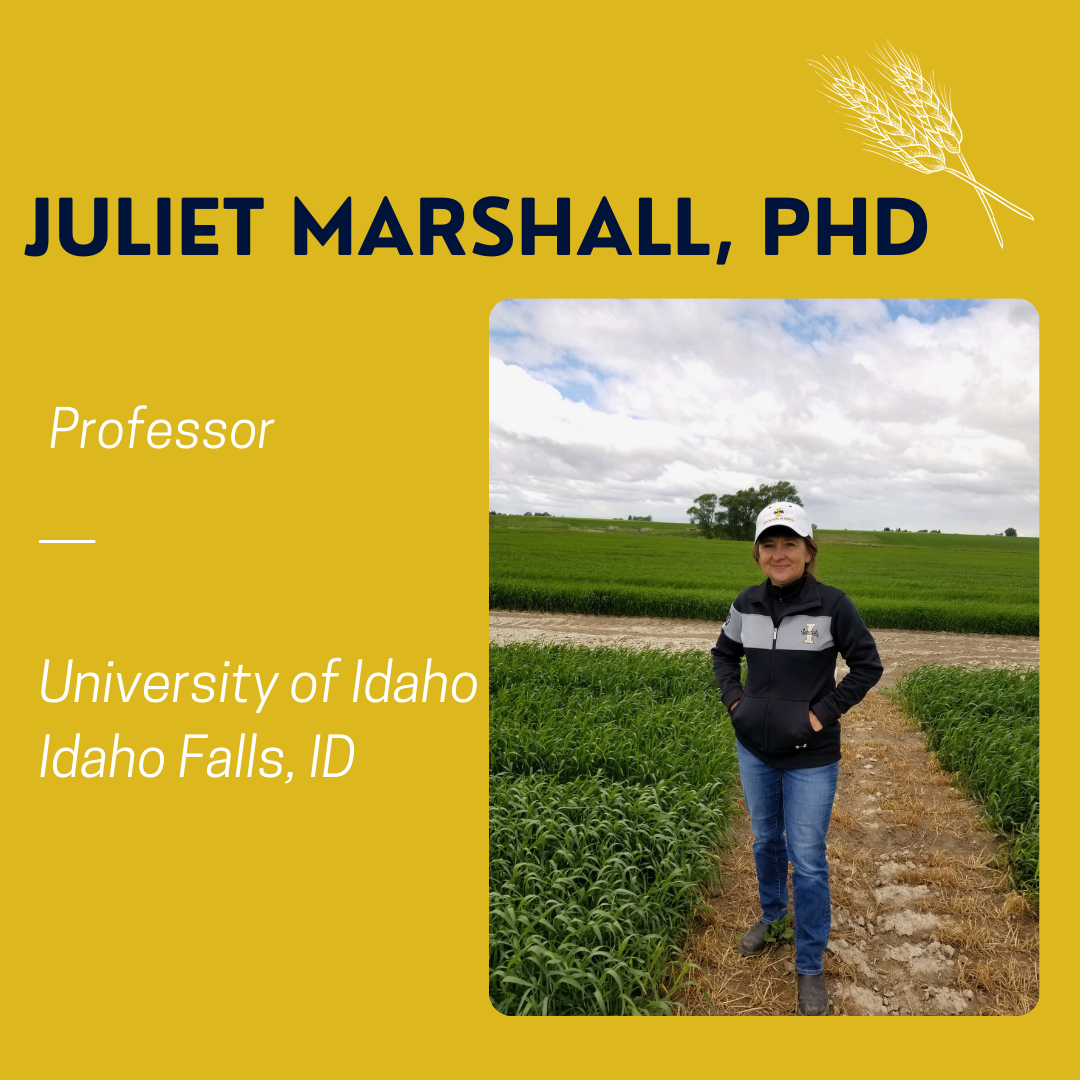Featured Researcher Bio - Juliet Marshall 2025

Meet Juliet Marshall, a professor of cereal agronomy and plant pathology and the associate director of the Idaho Agricultural Experiment Station at the University of Idaho. She conducts research and disseminates research-based information on varietal adaptation, cropping systems, and disease management. Marshall has been a PI with the USWBSI since 2014 and her projects focus on integrated management for barley and spring wheat as well as cultivar screening for FHB resistance.
Ag Experience Leads to Plant Pathology
Marshall grew up in Delaware on the Delmarva Peninsula, not far from major metropolitan areas, but surprisingly close to a breadth of agriculture. She gained experience with agriculture in high school through the Future Farmers of America. As a first-generation college student, Marshall attended the University of Delaware to explore plant sciences, where her great experiences with the faculty led her to pursue a career in genetics and plant pathology. Her biggest influence came from Robert B. Carroll, her undergraduate and then graduate advisor. Carroll introduced Marshall to the world of plant pathology, nurtured her love of learning, and supported her research on the interaction of the Southern corn stalk borer and Fusarium stalk rot of corn.
After graduating from the University of Delaware with her M.S. degree, Marshall was offered a position as the Kenty County Extension agent, but she decided instead to pursue her doctorate degree in plant pathology studying host-pathogen interactions using crown rust of oat as a model system at the University of Illinois. While there she was inspired by many faculty members including her advisor, Wayne Pederson.
Education Helps Reduce Risk
When Marshall joined the faculty at the University of Idaho in 2004, she never thought FHB would be an issue for producers in the high elevation desert of the Snake River Plain. But, as corn acreage began to increase, she noticed the sporadic occurrences of FHB increasing. In 2014, she received her first funding from the USWBSI to begin screening wheat and barley varieties for resistance to FHB and started participating in the Integrated Management Coordinated Project.
The Intermountain West is considered some of the most productive environments for toxin-free malt barley and wheat. Thus, FHB flew under the radar. By actively observing production fields, Marshall and her team preemptively started researching FHB management in irrigated environments. As an extension specialist, she has made an effort to interact with producers and industry to advise on management strategies and raise awareness of mycotoxin contamination. In her experience, the biggest challenge is getting the information to the right place at the right time to help people mitigate the risk and improve effective control.
Collegiality and Kindness Equals Success
Marshall encourages those starting their careers to collaborate with colleagues that you enjoy working with. Make friends with your fellow graduate students and others in your research circle because these will be the individuals with whom you’ll be interacting with for the next 40 years. “I always say that kindness, patience, and collegiality will get you farther in life,” said Marshall.
Another point she likes to make to early career professionals is to learn from the growers. Their expertise and observations based on field experience is invaluable. “Keep an open mind, don’t assume you know best,” adds Marshall.
For more information about Dr. Juliet Marshall's research, visit her faculty profile.
To learn more about others in the FHB community, check out all the previous USWBSI Featured Researchers/Advocates.
